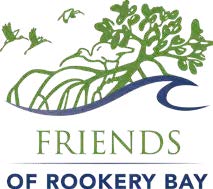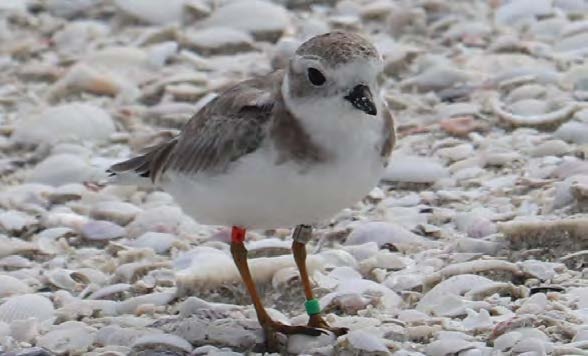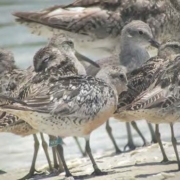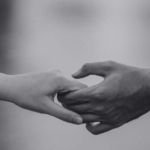We All Work Together to Protect Rookery Bay Reserve
by Robin F. DeMattia, Friends of Rookery Bay
Most of the time, Rookery Bay Research Reserve’s 110,000 acres are meant to be enjoyed by boaters,
kayakers, eco-tour operators, birders, photographers and anyone wanting to explore these wide open spaces.
But one of the main reasons the land and waters from Keewaydin Island through the Western Everglades were put into a reserve is to protect the animals that live, nest and migrate there.
 The biologists with the Rookery Bay National Estuarine Research Reserve monitor populations of birds, sea turtles, sharks and other animals to assess any challenges they face. A study this summer found one primary issue: people fishing from the beach on an island where birds nest. Cameras were set up on Second Chance island, a Critical Wildlife Area off Marco Island that is closed to public access when Least Terns, Wilson’s Plovers and Black Skimmers are nesting from March 1 to August 31.
The biologists with the Rookery Bay National Estuarine Research Reserve monitor populations of birds, sea turtles, sharks and other animals to assess any challenges they face. A study this summer found one primary issue: people fishing from the beach on an island where birds nest. Cameras were set up on Second Chance island, a Critical Wildlife Area off Marco Island that is closed to public access when Least Terns, Wilson’s Plovers and Black Skimmers are nesting from March 1 to August 31.
Researchers expected to collect data such as how eggs and chicks were affected by predators as well as tides from storms that covered nests. In addition to seeing that, however, the researchers also noticed many people walking on the island and fishing early in the morning near the nests, even though posted signs say “No Landing” and “No Fishing.”
The presence of these people fishing on the island stressed the adult birds, which left their nests. This resulted in the unattended eggs heating up in the sun, which reduced their chance of survival, and being vulnerable to predators such as raccoons, rats, crows and gulls.
Rookery Bay’s TEAM OCEAN volunteers as well as Florida Fish and Wildlife Conservation Commission staff increased their patrols to educate boaters about other places to fish, so they could enjoy the reserve while also protecting the birds.
Through mid-September, the reserve staff counted 259 fledged Least Terns, 69 Black Skimmers and 29 Wilson’s Plovers. The reserve’s biologists are now on the lookout for snowbirds – of the feathered kind!
 Recently, they saw a Red Knot that had been banded in New Jersey in 2015 and a Piping Plover that was banded this summer as a chick on Cat Island in Green Bay, Wisconsin.
Recently, they saw a Red Knot that had been banded in New Jersey in 2015 and a Piping Plover that was banded this summer as a chick on Cat Island in Green Bay, Wisconsin.
Anyone can report seeing a banded bird at https://reportband.gov or http://bandedbirds.org.
Plan a Visit Rookery Bay Environmental Learning Center 300 Tower Road Naples, FL 34114
RookeryBay.org
Open: Monday – Friday, 9 a.m. – 4 p.m.
Admission: Adults $8, children (6-12) $5, free for children under 6, active and retired military and their families, and Friends of Rookery Bay members
Guided kayak and small boat tours offered daily; book at rookerybay.org
Lunch & Learn lecture series (on-site and online)
November 5 – Made in Florida: Artists, Celebrities, Activists, Educators, and Other Icons in the Sunshine State
December 8 – Florida Soul
Painting Annual Exhibition opening reception November 4 from 5:30-7:00 p.m., free
3rd annual Rookery Bay Classic Car Show November 20 from 9 a.m. – 2 p.m.
Holiday Hootenanny shopping evening
December 2 from 4-7 p.m.




Leave a Reply
Want to join the discussion?Feel free to contribute!